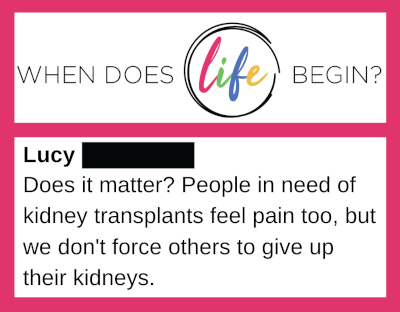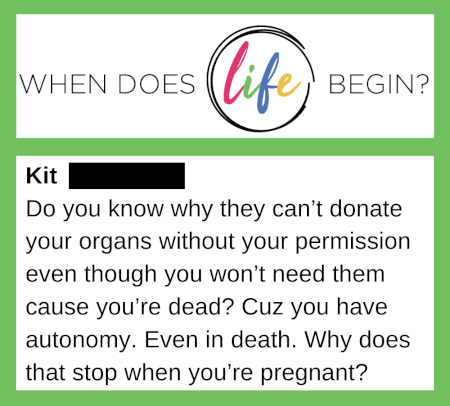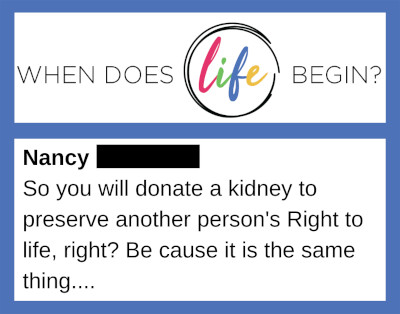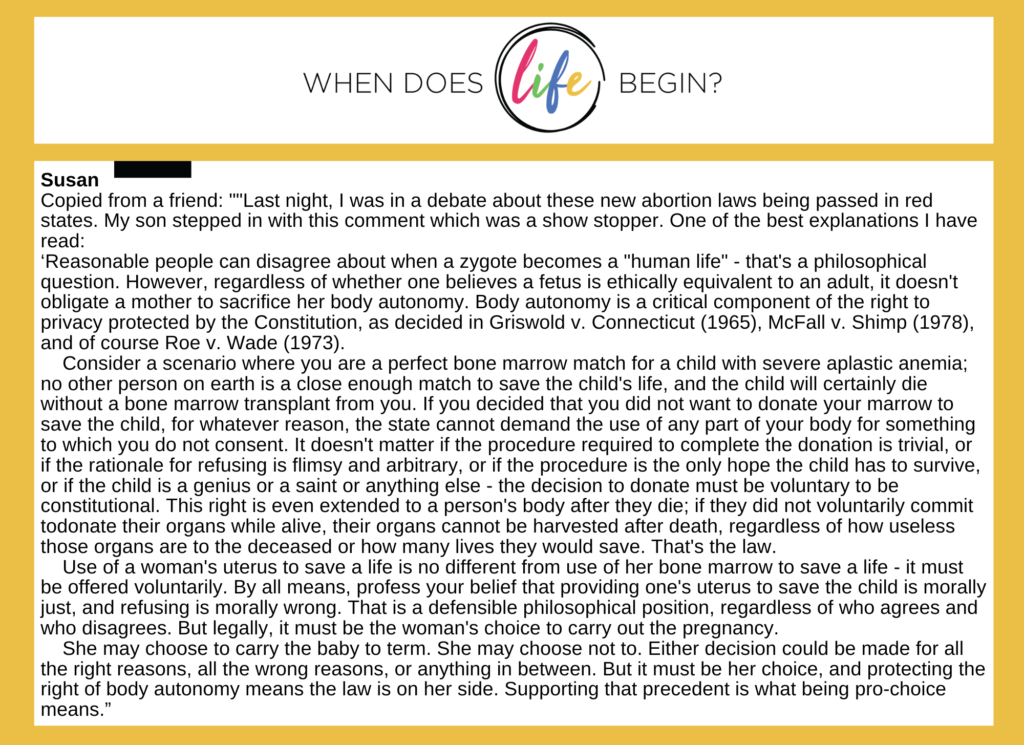
Lucy, donation of organs is a completely different issue. The hypothetical kidney patient has no connection to the donor, whereas the fetus has an intimate connection/relationship to the mother from the moment of conception. Relationship matters. We definitely agree that body autonomy is important. Therefore, should we not protect the body autonomy of the fetus – a separate human life?…

Kit, you are not understanding the fundamental scientific difference between your organs and an unborn human being. A person has full autonomy over their organs because they are THEIR organs – the DNA identifies them thusly. However, the unborn baby has a separate genetic identity from the mother – separate DNA – and thus is NOT the same person or merely an organ of the mother. On what basis do you deny the fundamental human right to life to a separate, genetic human being – the unborn?

Nancy…Regarding organ donation, as we mentioned, a random stranger has no claim on another person’s organs. There is no tie of responsibility. However, the mother and father have a responsibility to the baby which they created through their own actions. Our decisions carry responsibility.

Susan, thank you for your thoughts. Respectfully, we would like to respond. First, the definition of human life is not a philosophical question. It is a scientific, biological issue. At fertilization, all 46 chromosomes scientifically identifying the being as a human being are in place.
Some will argue that the fetus’s human life does not have the same value as an adult’s human life. But then where do we draw the line? What about a newborn which remains totally dependent?
We definitely agree that body autonomy is important. Therefore, should we not protect the body autonomy of the fetus – a separate human life?
It would seem that the correct place to exercise body autonomy is prior to intercourse – when the woman can rightly exercise control over her own body. Once conception has occurred, she would then be exercising control over another’s body – the fetus’s.
Donation of organs, marrow, etc. is a completely different issue. The hypothetical patient has no connection to the donor, whereas the fetus has an intimate connection/relationship to the mother from the moment of conception. Relationship matters.
… A person’s choice extends only to the boundary where their choice negatively affects another person. The fetus is a biologically unique human being. There are two bodies and two unique human beings involved. The FIRST right enumerated in our Declaration of Independence is the Right to Life. That foundational right is reaffirmed in our Constitution and throughout our nation’s body of law. Looking beyond strict law to general civic principles, Mahatma Gandhi said, “the true measure of any society can be found in how it treats its most vulnerable members.” We applaud choice but it needs to be exercised prior to the creation of a new human being who then has rights of its own.